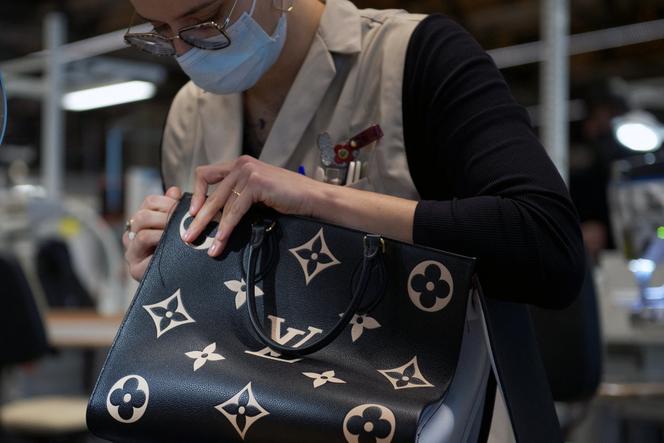


Workers at Louis Vuitton workshops are in no way surprised by LVMH's third-quarter setback. "For weeks, handbags have been piling up in our warehouses, without being shipped. And management is forcing us to take our vacations, right now, to reduce production," said a concerned staff representative at one of the 18 French factories of the LVMH group's flagship brand.
Since August, Louis Vuitton's subcontractors have also been anticipating it: Several experienced a drastic reduction in the number of hours the manufacturer buys from them to produce its models. At one of them, the Louis Vuitton contract reduced drastically in a few months, down to 350,000 to 390,000 production hours for the year 2024, from 400,000 to 450,000 initially forecast at the beginning of the year, according to Le Monde. Sales of handbags and leather goods, from which Louis Vuitton derives around 75% of its turnover, are stalling.
These rare measures respond to an exceptional situation. For the first time since the Covid-19 crisis, global sales for the luxury goods group, the world's number one in the sector, fell by 3%, in the third quarter of 2024, following weak gains of 1% in the second quarter and 3% in the first quarter, according to data released by the group on Tuesday, October 15. These figures fall short of the quarterly forecasts set by financial analysts, with most expecting stable business or even slight growth.
In the eyes of the financial markets, the health of the fashion and leather goods division is probably the most worrying. Louis Vuitton, Dior and Céline are key brands, generating almost half of LVMH's global sales, accounting for €86.2 billion in 2023, and three-quarters of its operating income. Yet in the third quarter of 2024, sales in this division fell by 5%, after increases of 1% and 2%, respectively, in the second and first quarters.
The sector leader's slippage does not bode well for the last three months of 2024. Especially as the end of the year is always a key sales period in the US, the world's leading luxury goods market. The country is ahead of China, where, according to estimates by consultancy Bain & Company, sales of handbags and other perfumes had still risen by more than 10% in 2023. Since the summer of 2024, this is no longer the case. Faced with the real estate crisis, the wealthiest Chinese are economizing. Younger people, who have been a huge customer base for almost a decade, are giving up spending for fear of unemployment. Luxury shopping malls are becoming empty.
You have 57.21% of this article left to read. The rest is for subscribers only.
